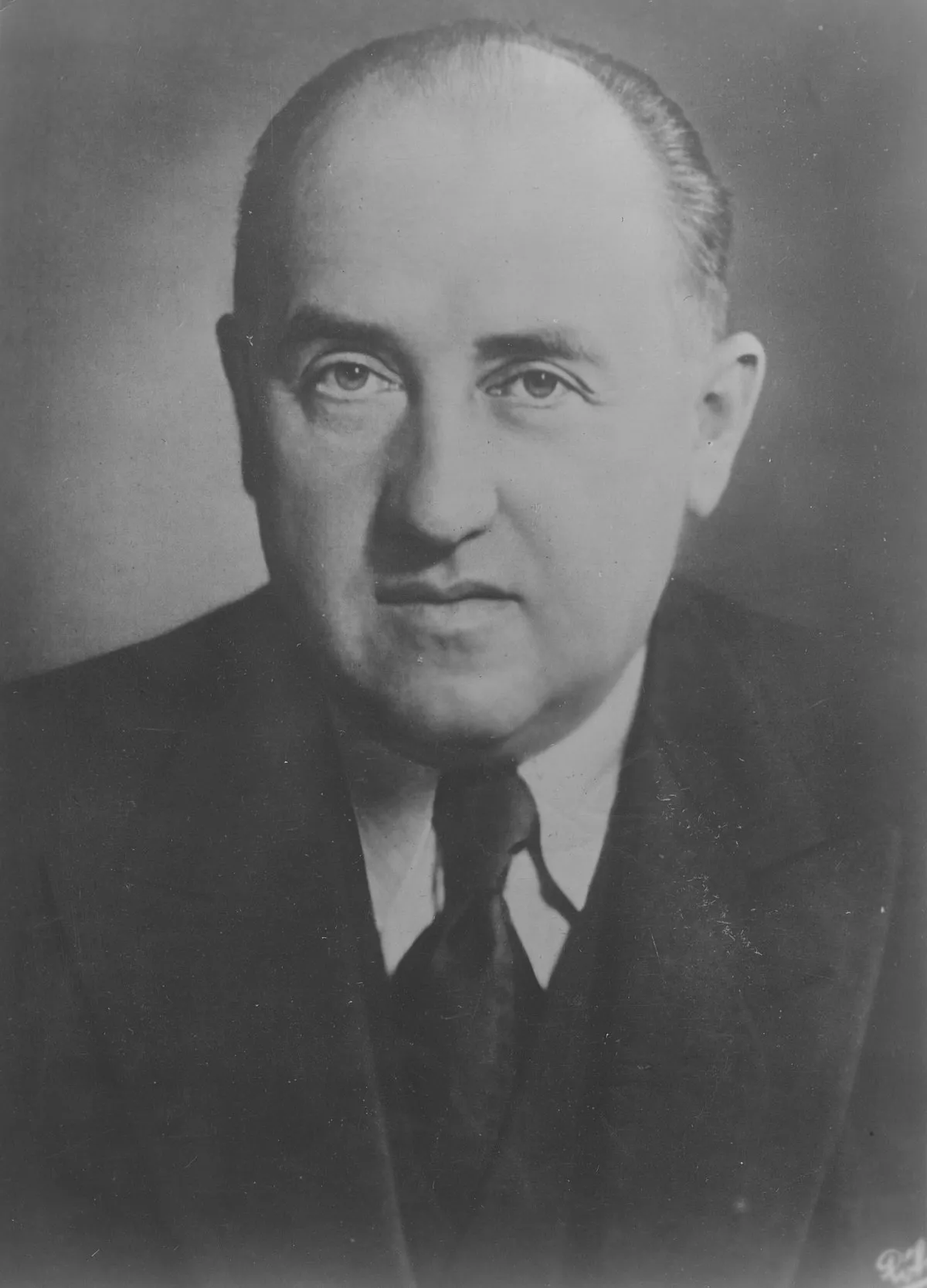 1.
1. Walther Immanuel Funk was a German economist and Nazi official who served as Reichsminister for the Economy from 1938 to 1945 and president of the Reichsbank from 1939 to 1945.

 1.
1. Walther Immanuel Funk was a German economist and Nazi official who served as Reichsminister for the Economy from 1938 to 1945 and president of the Reichsbank from 1939 to 1945.
Walther Funk was convicted for crimes against humanity by the Nuremberg Tribunal.
Walther Funk was a finance journalist before joining the Nazi Party in 1931 and being appointed to a senior post at the Ministry of Public Enlightenment and Propaganda.
Walther Funk served as economics minister for nearly all of World War II until he was de facto removed on 2 May 1945 after being left out of the Flensburg Government.
Walther Funk was tried and convicted as a major war criminal by the International Military Tribunal at Nuremberg after the war and sentenced to life in prison.
Walther Funk was incarcerated in West Berlin until he was released on health grounds in 1957 and died three years later.
Walther Funk was the only one of the Nuremberg defendants who was born in the former eastern territories of Germany.
Walther Funk studied law, economics, and philosophy at the University of Berlin and the University of Leipzig, receiving his law doctorate in 1912.
Walther Funk subsequently trained as a journalist at newspapers National-Zeitung in Berlin and Leipziger Neueste Nachrichten in Leipzig.
Walther Funk was wounded in action and subsequently discharged as medically unfit for service in 1916.
Walther Funk, who was a nationalist and anti-Marxist, resigned from the Berliner Borsenzeitung in the summer of 1931 and joined the Nazi Party, becoming close to Gregor Strasser, who arranged his first meeting with Adolf Hitler.
In March 1933, Walther Funk was appointed as a State Secretary at the Reich Ministry of Public Enlightenment and Propaganda.
On 5 February 1938, Walther Funk became General Plenipotentiary for Economics, as well as Reichsminister for the Economy to permanently replace Hjalmar Schacht who had resigned on 26 November 1937.
Walther Funk succeeded Schacht as Minister of Economics and Labor of Prussia and as an ex officio member of the Prussian State Council.
Walther Funk would hold all these posts until the fall of the Nazi regime.
Between April 1938 and March 1939, Walther Funk was a Director of the Switzerland-based multi-national Bank of International Settlements.
Walther Funk recorded that by 1938 the German state had confiscated Jewish property worth two million Reichsmarks, using decrees from Hitler and other top Nazis to force German Jews to leave their property and assets to the state if they emigrated, such as the Reich Flight Tax.
On 30 August 1939, immediately prior to the outbreak of the Second World War, Walther Funk was appointed by Hitler to the six-person Council of Ministers for Defense of the Reich which was set up to operate as a "war cabinet".
Walther Funk subsequently joined Robert Ley, Speer and Goebbels in the struggle against the influence on Hitler by Martin Bormann.
Walther Funk stayed in office until nearly the end of the Nazi regime, and was named by Hitler in his last will and testament to continue as Reichsminister for the Economy in the cabinet of Goebbels after his suicide on 30 April 1945.
Walther Funk was tried with other Nazi leaders at the Nuremberg trials.
Walther Funk was accused by Allied prosecutors of having been closely involved in the state confiscation and disposal of the property of German Jews, of conspiracy to commit crimes against peace, the planning, initiating and waging wars of aggression, war crimes, and crimes against humanity.
Walther Funk argued that, despite his employment titles, he had very little power in the Nazi regime.
Walther Funk did however, admit to signing the laws that "Aryanized" Jewish property and in that respect claimed to be "morally guilty".
Walther Funk was clearly distressed during the proceedings and cried during presentation of evidence, such as the murders carried out in the concentration camps, requiring sleeping pills at night.
Schacht believed that there were many matters of which Walther Funk had no knowledge whatsoever and that he gave a poor performance in the witness box.
Walther Funk was held at Spandau Prison along with other senior Nazis.
On 16 May 1957, Walther Funk was granted compassionate release because of ill health, making last-minute visits to Speer, Rudolf Hess, and Baldur von Schirach before leaving the prison.
On 31 May 1960, Walther Funk died of complication from diabetes in Dusseldorf, West Germany.